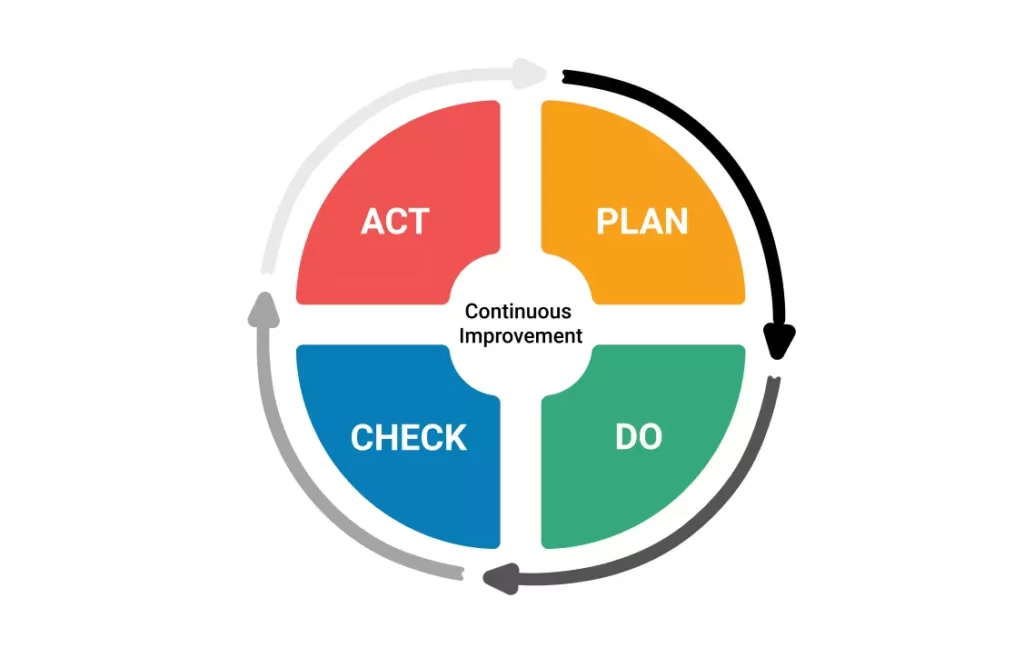The Importance of Effective Leadership in Today’s Business World
Effective leadership is critical to the success of any organization in today’s business world. Here are some of the reasons why:
- Sets the Direction: Effective leaders provide a clear vision and direction for the organization. They communicate the organization’s purpose, values, and goals, which helps to align the efforts of all employees towards a common objective.
- Inspires and Motivates: Effective leaders inspire and motivate employees to give their best performance. They create a positive work environment and foster a culture of innovation, collaboration, and continuous learning.
- Builds Trust and Credibility: Effective leaders build trust and credibility with employees, customers, and other stakeholders. They lead by example, demonstrate integrity, and uphold ethical standards in all their actions.
- Manages Change: Effective leaders are adept at managing change in today’s fast-paced business environment. They are agile and adaptable and can guide the organization through challenging times with confidence and resilience.
- Develops Talent: Effective leaders are committed to developing the talent of their employees. They provide opportunities for learning and growth, and they invest in the development of future leaders.
- Drives Results: Effective leaders focus on achieving results. They set challenging goals, monitor progress, and take corrective action when needed to ensure that the organization achieves its objectives.

Overall, effective leadership is essential to the success of any organization in today’s business world. It helps to create a positive work environment, build trust and credibility, manage change, develop talent, and drive results. Effective leaders can make a significant difference in the performance and success of their organization.
The Characteristics of Effective Leaders: Traits That Set Them Apart
Effective leaders share several key characteristics that set them apart from others. Here are some of the most important traits of effective leaders:
- Visionary: Effective leaders have a clear and compelling vision for their organization. They can see the big picture and can articulate a vision that inspires and motivates others.
- Empathetic: Effective leaders have empathy for others. They can understand and appreciate the perspectives of their employees, customers, and other stakeholders, and they use this understanding to guide their decisions.
- Decisive: Effective leaders are decisive. They can make tough decisions quickly and confidently, even in the face of uncertainty or risk.
- Strategic: Effective leaders are strategic thinkers. They can analyze complex information, identify trends and patterns, and develop long-term plans that are aligned with the organization’s goals.
- Communicative: Effective leaders are great communicators. They can communicate their vision and goals clearly and effectively, and they are adept at listening to feedback and responding to the needs of others.
- Collaborative: Effective leaders are collaborative. They work well with others and are able to build strong relationships with employees, customers, and other stakeholders.
- Innovative: Effective leaders are innovative. They are willing to take risks, try new things, and explore new opportunities to drive growth and success for their organization.
- Resilient: Effective leaders are resilient. They are able to bounce back from setbacks, stay focused on their goals, and remain optimistic even in the face of challenges.
Overall, effective leaders possess a unique combination of traits that enable them to inspire and motivate others, make tough decisions, think strategically, communicate effectively, collaborate with others, innovate, and remain resilient. These traits are critical to the success of any organization, and effective leaders are able to use them to achieve their goals and drive their organizations to new levels of success.
Leading with Purpose: Strategies for Developing Strong Leadership Skills
Leading with purpose is a critical skill for effective leaders. Here are some strategies for developing strong leadership skills:
- Define your purpose: Effective leaders have a clear sense of purpose that drives their decisions and actions. Take the time to define your purpose and identify your core values, goals, and objectives.
- Develop your emotional intelligence: Emotional intelligence is the ability to understand and manage your own emotions, as well as the emotions of others. Effective leaders have strong emotional intelligence, which helps them to communicate effectively, build strong relationships, and inspire and motivate others.
- Communicate clearly and consistently: Effective leaders are great communicators. They are able to communicate their vision, goals, and expectations clearly and consistently, and they listen to feedback from others.
- Build strong relationships: Effective leaders build strong relationships with employees, customers, and other stakeholders. They take the time to get to know others and show a genuine interest in their concerns and needs.
- Develop your strategic thinking skills: Effective leaders are strategic thinkers. They are able to analyze complex information, identify trends and patterns, and develop long-term plans that are aligned with the organization’s goals.
- Focus on continuous improvement: Effective leaders are committed to continuous improvement. They are always looking for ways to improve their skills and knowledge, as well as the performance of their organization.
- Be adaptable: Effective leaders are adaptable. They are able to adjust to changing circumstances, make tough decisions, and remain flexible in the face of uncertainty or risk.
- Lead by example: Effective leaders lead by example. They set the tone for the organization and demonstrate the behaviors and values that they expect from others.
Overall, developing strong leadership skills requires a commitment to continuous learning, self-reflection, and personal development. By defining your purpose, developing your emotional intelligence, communicating clearly and consistently, building strong relationships, developing your strategic thinking skills, focusing on continuous improvement, being adaptable, and leading by example, you can become a more effective leader and achieve your goals.
Effective Leadership in Practice: Real-Life Examples and Case Studies
Effective leadership is critical for the success of any organization. Here are some real-life examples and case studies of effective leadership in practice:
- Jeff Bezos, Amazon: Jeff Bezos is widely regarded as one of the most successful and innovative leaders of our time. Under his leadership, Amazon has become one of the largest and most profitable companies in the world. Bezos is known for his visionary approach, his focus on customer service, and his willingness to take risks and innovate.
- Indra Nooyi, PepsiCo: Indra Nooyi is a highly respected leader in the business world. She served as the CEO of PepsiCo for 12 years, during which time she oversaw significant growth and innovation. Nooyi is known for her strategic thinking, her focus on sustainability, and her commitment to diversity and inclusion.
- Satya Nadella, Microsoft: Satya Nadella became the CEO of Microsoft in 2014, and under his leadership, the company has experienced a significant transformation. Nadella is known for his focus on innovation, his emphasis on collaboration and teamwork, and his commitment to creating a culture of inclusion and empowerment.
- Mary Barra, General Motors: Mary Barra is the first female CEO of a major global automaker. Under her leadership, General Motors has experienced significant growth and innovation. Barra is known for her strategic thinking, her focus on innovation and sustainability, and her commitment to creating a culture of accountability and transparency.
- Tim Cook, Apple: Tim Cook succeeded Steve Jobs as the CEO of Apple in 2011. Under his leadership, Apple has continued to innovate and expand, with a focus on sustainability, diversity and inclusion, and social responsibility. Cook is known for his strategic thinking, his focus on customer service, and his commitment to ethical leadership.
Overall, these leaders demonstrate the importance of vision, strategic thinking, innovation, and a commitment to values such as diversity, inclusion, and sustainability. Effective leadership requires a combination of skills and attributes, including emotional intelligence, communication skills, strategic thinking, adaptability, and a commitment to continuous improvement. By studying real-life examples and case studies of effective leadership in practice, we can learn from the experiences of others and develop our own leadership skills and abilities.
The Role of Effective Communication in Leadership: Strategies for Building Strong Relationships
Effective communication is critical for strong leadership and building strong relationships with employees, customers, and other stakeholders. Here are some strategies for building strong relationships through effective communication:
- Listen actively: Effective leaders listen actively to others. They take the time to understand the perspectives and concerns of others, and they ask questions to clarify their understanding.
- Communicate clearly and consistently: Effective leaders communicate their vision, goals, and expectations clearly and consistently. They use simple, straightforward language, and they avoid jargon and technical terms.
- Use a variety of communication methods: Effective leaders use a variety of communication methods, including face-to-face meetings, email, phone calls, and video conferencing. They tailor their communication style to the preferences of their audience.
- Be transparent and honest: Effective leaders are transparent and honest with others. They share information openly, even if it is difficult or uncomfortable, and they admit their mistakes and take responsibility for their actions.
- Provide feedback and recognition: Effective leaders provide feedback and recognition to others. They acknowledge the contributions of others, and they provide constructive feedback to help others improve their performance.
- Build rapport and trust: Effective leaders build rapport and trust with others. They take the time to get to know others, show a genuine interest in their concerns and needs, and follow through on their commitments.
- Be aware of nonverbal communication: Effective leaders are aware of nonverbal communication, such as facial expressions and body language. They use nonverbal cues to reinforce their message and show empathy and understanding (1).
Overall, effective communication is critical for building strong relationships and achieving success as a leader. By listening actively, communicating clearly and consistently, using a variety of communication methods, being transparent and honest, providing feedback and recognition, building rapport and trust, and being aware of nonverbal communication, leaders can build strong relationships and inspire others to achieve their goals.
Leading Through Change: Navigating Challenges and Fostering Innovation
Leading through change can be a challenging task, but it is essential for the success of any organization. Here are some strategies for navigating challenges and fostering innovation during times of change:
- Communicate clearly: Effective communication is essential during times of change. Leaders should communicate the reasons for the change, the expected outcomes, and the steps required to achieve those outcomes. They should also address any concerns or questions that arise.
- Build a strong team: A strong team is essential for navigating change. Leaders should assemble a team with a diverse range of skills and perspectives, and they should provide training and support to help team members adapt to the changes.
- Foster a culture of innovation: Change can be an opportunity for innovation. Leaders should encourage creativity and experimentation, and they should recognize and reward innovative ideas and approaches.
- Be adaptable: Change is rarely straightforward, and leaders need to be adaptable and flexible in their approach. They should be willing to adjust their plans and strategies based on feedback and new information.
- Anticipate and manage resistance: Resistance to change is normal, and leaders should anticipate and manage this resistance. They should address concerns and questions openly and honestly, and they should involve team members in the change process as much as possible.
- Celebrate successes: Celebrating successes, no matter how small, can help to build momentum and maintain motivation during times of change. Leaders should recognize and celebrate the achievements of team members and the organization as a whole.
Overall, leading through change requires a combination of communication skills, adaptability, creativity, and empathy. By communicating clearly, building a strong team, fostering a culture of innovation, being adaptable, anticipating and managing resistance, and celebrating successes, leaders can navigate challenges and foster innovation during times of change.
The Importance of Self-Awareness in Leadership: Understanding Your Strengths and Weaknesses
Self-awareness is critical for effective leadership. It involves understanding your own strengths and weaknesses, as well as your values, beliefs, and motivations. Here are some reasons why self-awareness is important for leadership:
- Improved decision-making: When leaders have a clear understanding of their strengths and weaknesses, they are better able to make decisions that align with their values and goals. They can also delegate tasks to others who have strengths in areas where they may be weaker.
- Enhanced communication: Self-aware leaders are better able to communicate with others. They understand how their words and actions impact others, and they can adjust their communication style to better connect with different individuals and groups.
- Greater empathy: Leaders who are self-aware are better able to empathize with others. They understand the needs and concerns of their team members and are better able to provide support and guidance when needed.
- Better collaboration: Self-aware leaders are better collaborators. They understand the strengths and weaknesses of their team members and can leverage those strengths to achieve common goals. They can also recognize their own limitations and seek help when needed.
- Increased self-improvement: Leaders who are self-aware are more open to feedback and self-improvement. They are willing to reflect on their own actions and behaviors and make changes to become more effective leaders.
Overall, self-awareness is essential for effective leadership. By understanding their own strengths and weaknesses, values, beliefs, and motivations, leaders can make better decisions, communicate more effectively, empathize with others, collaborate more effectively, and seek continuous self-improvement.
Building and Motivating High-Performing Teams: Strategies for Success
Building and motivating high-performing teams is essential for the success of any organization. Here are some strategies for success:
- Set clear goals and expectations: High-performing teams are focused on achieving clear goals and expectations. Leaders should communicate these goals and expectations clearly, and ensure that all team members understand them.
- Encourage collaboration: Collaboration is essential for high-performing teams. Leaders should create an environment where team members can work together, share ideas, and support one another.
- Build trust: Trust is essential for high-performing teams. Leaders should demonstrate trust in their team members, and encourage team members to trust one another. This can be done through open communication, honesty, and transparency.
- Recognize and reward achievements: High-performing teams thrive on recognition and rewards. Leaders should recognize and celebrate team achievements, and provide rewards that are meaningful to team members.
- Provide opportunities for growth and development: High-performing teams are constantly learning and growing. Leaders should provide opportunities for team members to develop new skills and knowledge, and encourage them to take on new challenges.
- Foster a positive team culture: A positive team culture is essential for high-performing teams. Leaders should foster a culture of positivity, where team members are supportive, respectful, and focused on achieving common goals.
- Encourage creativity and innovation: High-performing teams are often innovative and creative. Leaders should encourage team members to think outside the box and experiment with new ideas and approaches.
- Communicate effectively: Effective communication is essential for high-performing teams. Leaders should communicate clearly and frequently, and ensure that all team members are kept informed about relevant developments and decisions.
Overall, building and motivating high-performing teams requires a combination of clear goals and expectations, collaboration, trust, recognition and rewards, growth and development, a positive team culture, creativity and innovation, and effective communication. By implementing these strategies, leaders can help their teams to achieve their full potential and drive the success of their organization.


